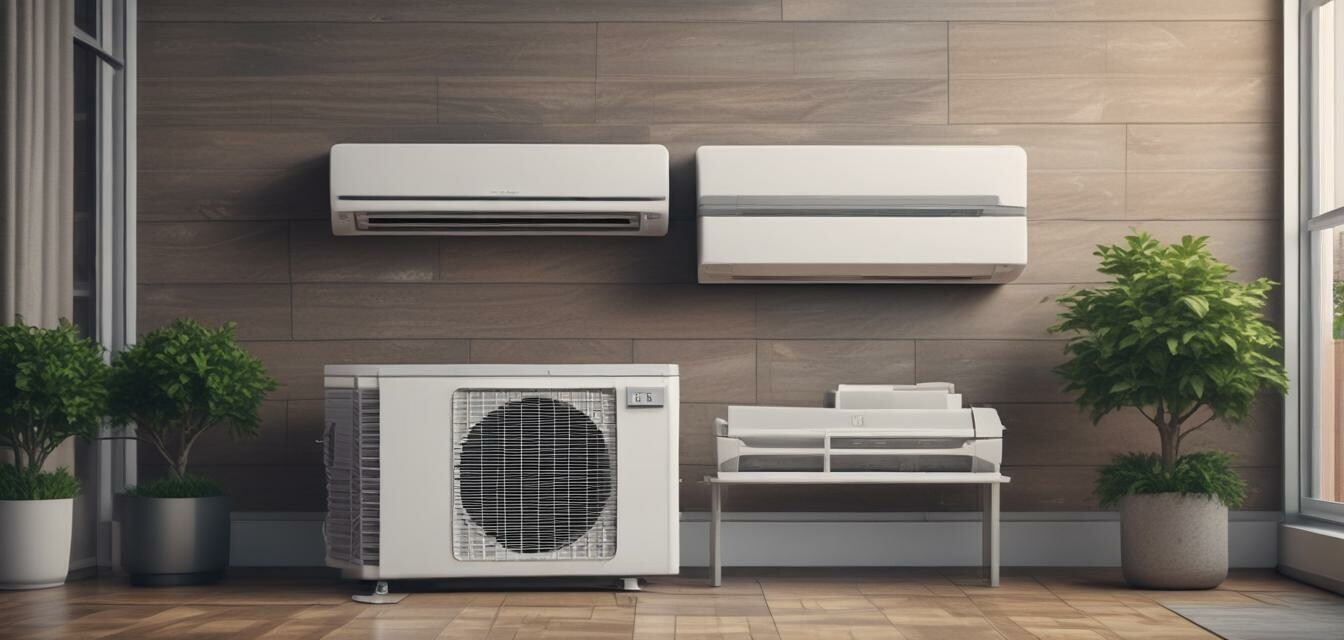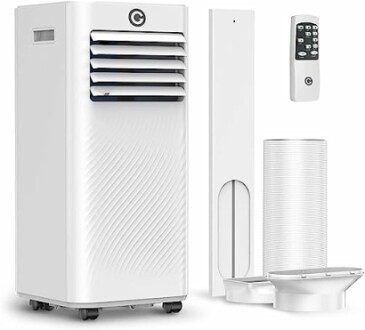
Energy Efficient Air Conditioners: What to Look For
Key Takeaways
- Understanding SEER ratings is crucial for evaluating cooling efficiency.
- Look for multifunctional features that offer added convenience and value.
- Compact and portable models can cater to different room sizes and needs.
- Consider eco-friendly refrigerants that minimize environmental impact.
Choosing the right air conditioner for your home is essential, especially when aiming for energy efficiency. With rising electricity bills and a growing awareness of environmental issues, consumers are increasingly looking for air conditioning systems that not only provide comfort but also help reduce energy consumption. This guide will help you navigate the crucial aspects you need to consider when selecting an energy-efficient air conditioner.
Understanding SEER Ratings
Seasonal Energy Efficiency Ratio (SEER) is a standard measure for the efficiency of air conditioner cooling systems. The higher the SEER rating, the more efficient the unit is. Here’s a breakdown of SEER ratings:
| SEER Rating | Energy Efficiency Classification |
|---|---|
| 13 – 15 | Average Efficiency |
| 16 – 18 | Good Efficiency |
| 19+ | Excellent Efficiency |
Features to Consider
When selecting an energy-efficient air conditioner, consider these critical features:
- Cooling Capacity: Measured in British Thermal Units (BTU), the cooling capacity should match your room size for effective cooling.
- Energy-Saving Features: Look for options like programmable settings, timers, and smart technology that optimize performance.
- Noise Levels: Check the noise rating of the units (measured in dB). Quieter models improve comfort, especially for bedrooms.
- Portability: If you need to move your air conditioner, consider portable models that come with wheels and handles.
- Eco-Friendly Refrigerants: Choose models that use R290 or other natural refrigerants to reduce environmental impact.
Top Energy-Efficient Air Conditioners to Consider
KGOGO 4-in-1 Powerful Portable Air Conditioner
This versatile air conditioner cools, dehumidifies, and ventilates, featuring a digital display and remote control for convenience.
Learn MoreComparing Different Models
Before making a decision, it’s helpful to compare different models based on their features and specifications. Here’s a comparison of popular energy-efficient air conditioners:
| Model | Cooling Power (BTU) | Special Features | Noise Level (dB) |
|---|---|---|---|
| KGOGO 4-in-1 | 7000 | Dehumidifier, Remote Control | 65 |
| Comfee 9000 Breezy Cool Pro | 9000 | 4 Way Swing, Energy Star | 64 |
| SereneLife 3-in-1 | 9000 | Dehumidifier, Heating Function | 57 |
Benefits of Energy-Efficient Air Conditioners
Investing in energy-efficient air conditioners can significantly impact your power bills and overall comfort. Key benefits include:
- Lower energy consumption, leading to reduced electricity bills.
- Enhanced comfort with consistent cooling performance.
- Environmentally friendly options that minimize your carbon footprint.
- Possible tax incentives for using energy-efficient appliances.
Common Mistakes to Avoid
When purchasing an air conditioner, avoid these common pitfalls:
- Choosing a unit based solely on price rather than efficiency.
- Neglecting to check the SEER rating and energy class.
- Overlooking the size of the unit in relation to the room.
- Failing to consider additional features that enhance usability.
- Ignoring maintenance needs, which can affect long-term efficiency.
Pros
- Energy savings on utility bills.
- Improved indoor air quality.
- Reduced environmental impact.
Cons
- Higher initial purchase cost.
- Possible complexity in features may confuse some users.
Conclusion
Choosing the right energy-efficient air conditioner involves understanding SEER ratings, considering features, and comparing models. Take your time to assess your space and needs before making a decision. By investing in a high-quality air conditioning unit, you’ll enjoy both comfort and savings.
Tips for First-Time Buyers
- Make a list of essential features that are necessary for your living space.
- Consult reviews and ratings for various models before deciding.
- Think about installation requirements and possible additional costs.
- Explore energy rebates or incentives available in your area.
For more information, visit our related guides on energy-efficient refrigerators or energy-saving dishwashers.

